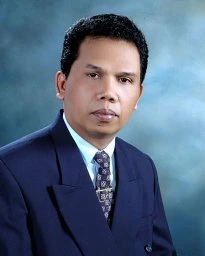The 1st National Seminar on Digitalization in Law and Society in Indonesia, “Understanding Changes in Indonesian Law and Society towards Digital Disruption,” is the title of the seminar held by the Faculty of Law, Universitas Airlangga, on Monday (3/4/2023). This seminar is not like other law seminars within the scope of the national law faculty because this seminar raises the topic of digitalization, technology, and the development of the times. This indicates that the Faculty of Law, Universitas Airlangga, has made a breakthrough by caring about world developments, especially technology.
To support the topic of discussion this time, Universitas Airlangga does not only work with local universities but also world-renowned universities. One of the universities that cooperates with Unair is Riau Islamic University. In addition, there are also world-renowned professors from the Fachhochschule Dortmund, Prof. Michael Bohne, and Universität der Bundeswehr München, Prof. Stefan Koos. Not forgetting neighboring countries, Unair also presented a lecturer at the International Islamic University Malaysia (IIUM), Prof. Dr. Sonny Zulhuda and Prof. Dr. Nasarudin.
The seminar started warmly with remarks from the project officer, namely Mr. Taufik Rachman, S.H., LL.M., Ph.D., followed by comments by the President of Riau Islamic University, namely Prof. H. Syafrinaldi, S.H., M.C.L., and the Vice President for Research, Innovation, and Community Development at Universitas Airlangga, Prof. Dr. Ni Nyoman Tri Puspaningsing. The three influential individuals also shared their views on law and technology in their speeches.
After the remarks, the following agenda is the plenary session. This first plenary session strongly relates to IPR or Intellectual Property Rights, data protection, and Business Law. The speakers briefly explained that matters that must be of concern to the legal sector are private law, which regulates many individual interests. Data privacy and protection against it are the essential topics of discussion in this plenary session. Due to the underdeveloped regulations, rules, and also laws against this fast-paced technological change, data privacy is being threatened. Presumably, the discussion of the first plenary session aims to support legal developments, which must also be aligned.
After the plenary session, the agenda continued with a presentation session. The presentation session was divided into four chambers. The paper writers who submitted their papers to FH Unair in this session were allowed to present their results and were also given a moderator and a speaker in each chamber. Not infrequently, the presenters also have the status of a lecturer or a master’s degree. So, it is not only students who participate but also academics.
After the presentation session was over, then a second plenary session was held. In this plenary session, the song emphasized data privacy which is a very important to be a hot topic of discussion in the development of the legal field. But what is interesting in this plenary session is the discussion on AI (Artificial Intelligence) by Prof. Stefan Koos. He took a sample of how widespread the use of AI in various forms is in the current era, resulting in copyright issues. And he also emphasized how we must be more careful and selective in determining the wrongdoing committed by AI, because AI is not a legal subject.
After the second plenary session, which was very interesting and critical, the agenda continued with awarding the best presenter. In addition to appreciation aimed at the best presenters, through the closing ceremony by the Dean of the Faculty of Law, Airlangga University, Mr. Iman Prihandono, S.H., M.H., LL.M., Ph.D., he also appreciated all parties who had worked together to make the first national seminar on digitalization successful held by Airlangga University.
One more unforgettable word from the President of UIR, Prof. H. Syafrinaldi, S.H., M.C.L., is “Law is always left behind,”. These words are also a slap in the face for a young jurist to be more agile and agile in dealing with changing times, especially technology, so that law is not seen as old-fashioned and left behind. The law should be able to provide justice, so the law should be able to participate in new polemics and problems that continue to emerge in the current era of technological development.








